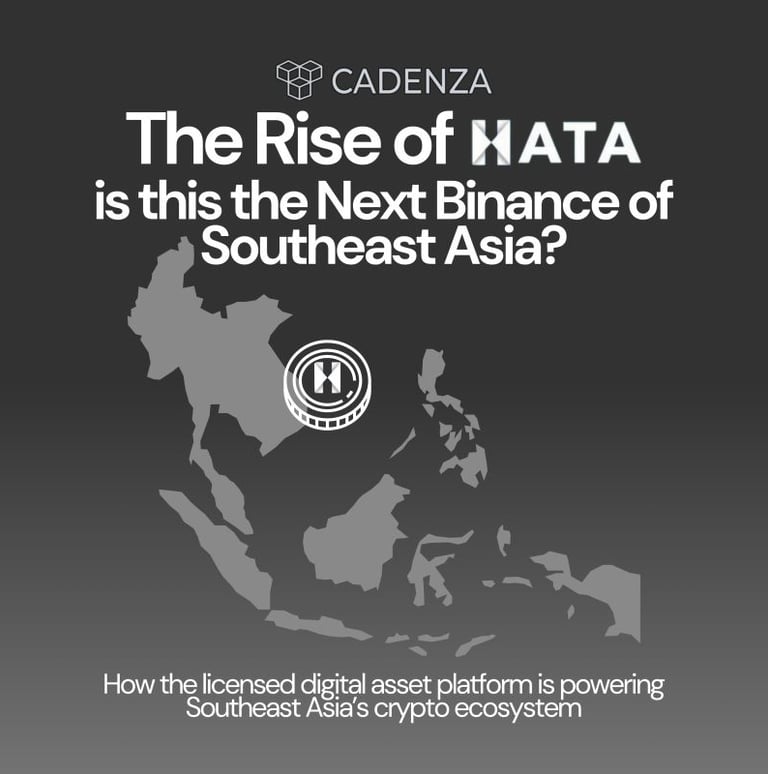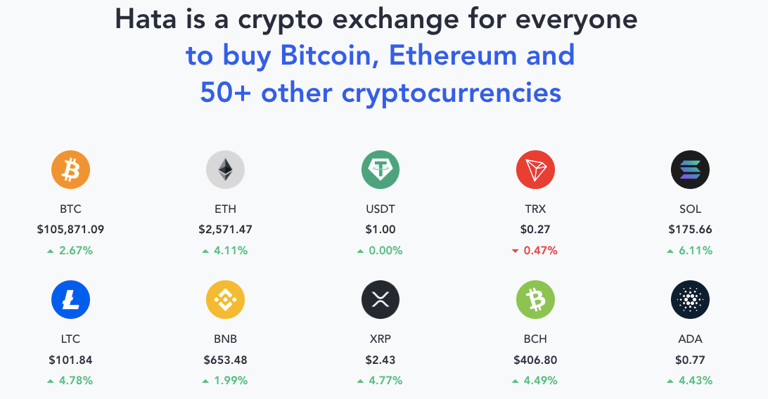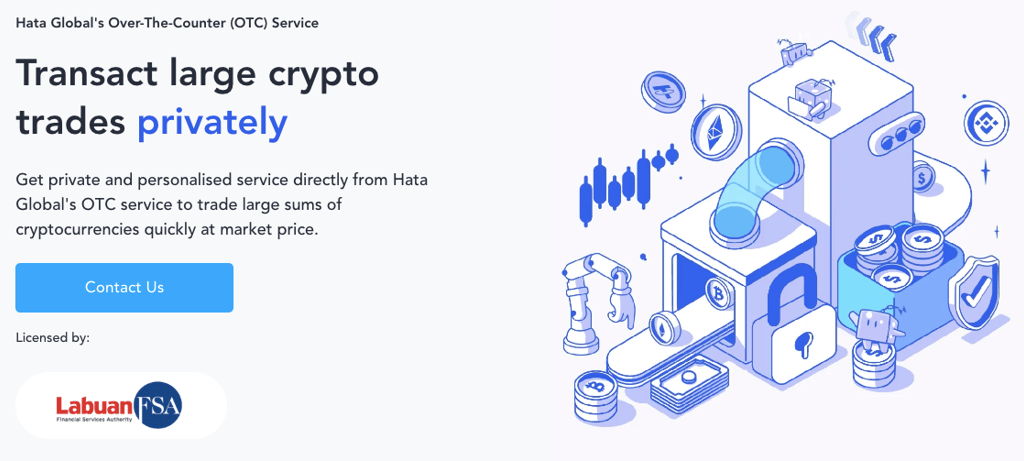The Rise of Hata: Is This the Next Binance of Southeast Asia?


Converting government-issued fiat currency into digital assets is filled with friction.
Despite the majority payments being made via electronic means, exchange is often still slow, expensive, and difficult.
One platform is changing this and becoming a one-stop-shop for bridging the digital and fiat worlds.
The World’s Most Dynamic Digital Market
A 20% digital asset ownership rate, against a global average of 7%.
A Millennial and Gen Z cohort that makes up the largest group of owners.
The largest share of worldwide digital asset liquidity, accounting for 60% of global activity, despite having only 8.5% of the world’s population.
This is Southeast Asia. The world’s most dynamic digital asset market.
Indonesia leads the way when it comes to adoption, and Singapore has the best digital infrastructure in the region, but an often overlooked market is beginning to stand out.
Over the past decade, Malaysia’s digital economy has experienced compound growth of 10-12% annually.
Such dynamic growth has been built on two core pillars.
Government Support and Regulation
Unlike some government regimes that have stifled or even outright banned digital assets the Securities Commission of Malaysia (SC) has embraced and supported the digital shift happening within its borders.
Today, the country legally categorizes digital assets as securities, which are used by more than 4.6 million people in one form or another, and it is even exploring the issuance of a tokenized bond,, or sukuk, in local terms.
It calls this the “twin track approach,” paving the way for tokenized securities and the continued growth of digital assets.
Local developers and entrepreneurs have welcomed this collaborative stance and have stepped up to do their part.
A Booming Startup Ecosystem
According to some sources, Malaysia has the third-best startup ecosystem in Southeast Asia, and it is also top 50 in the world.
A few factors went into such a ranking.
The first is the overall impact startups have on the local economy, and in Malaysia, it is huge. This year, new businesses, which come predominantly from the digital sector, are expected to contribute 25% to the country’s GDP.
Another measure that makes Malaysia a top-tier ecosystem is early-stage funding and investor activity.
Last year, startups raised more than $100 million USD from investors, including $23 million from the Malaysian government, through its MyStartup initiative.
Those based in Kuala Lumpur led the way, but other cities such as George Town and Penang were also well represented.
Finally, a large local talent pool and ease of doing business complete Malaysia’s ecosystem, and it’s ascent into the top half of places in the world to start a business.
Looking across the country’s booming startup landscape, AI, DeFi, and Fintech are all fast-growing spaces.
However, a series of events has left a void and a major opportunity in one essential, yet underserved, vertical.
An Institutional Grade Exchange
The proliferation of local cryptocurrency investment scams and the 2023 collapse of FTX have sent ripples through the Southeast Asian economy.
Not only have vulnerable segments of the population lost part of their hard-earned savings, but state-owned funds have had to write down hundreds of millions in investments.
Naturally, what followed was a heightened sense of scrutiny and a de-risking.
This took the form of a crackdown on unregulated digital asset exchanges and an institutional capital flight from the same. Today, most exchanges cannot accept fiat deposits, such as USD, from their customers or process withdrawals on their behalf.
Moreover, most institutions now require, at minimum, a licensed platform for conducting digital asset transactions and for custody.
Today, only five registered and regulated digital asset exchanges (DAXs) remain in Malaysia, and the newest entrant, Hata, is shaking things up.
Four Key Differentiators
As commodity service providers, digital asset exchanges have traditionally competed based on the number of trading pairs offered and fees.
On both fronts, Hata is a leader.
First, Hata’s 50+ pairs, including stablecoins, such as Tether’s USDT, and Binance’s BNB, is unmatched.


This support and liquidity sourced directly from its USD/USDT market make trading a breeze.
By comparison, Luno offers trading across just 25 pairs and no digital-to-digital conversions.
When it comes to trading fees, Hata’s maker fees are always 0%, while taker fees are based on total 30-day trading volume, and start at 0.40%, going down to 0.18%.
Most others, such as MX Global, SINEGY, and Luno, have taker fees that start at 0.50%.
However, these are just the starting points, and Hata has introducing some features that are absent from the local market.
Malaysia’s straightforward classification of digital assets as securities and regulatory integration of spot Bitcoin and Ethereum ETFs make institutional investor adoption easy.
Despite this, precious few platforms are supporting high-value transactions at the best price.
Hata’s OTC Desk does.
Not only is the service able to provide the most competitive quotes for large trades because of its smart ordering system, which routes trades to a centralized global liquidity pool. But the same liquidity also ensures rapid, secure trade execution.


The SC’s 2024 annual report revealed that digital asset trading volume remained small compared to the domestic equity market, but average daily digital asset trading increased in 2024, and is expected to follow suit this year.
Under its Financial Services Authority (FSA) license, Hata can also act as a payment system operator.
This means wallet and custodial services that are plugged into the fiat currency system, making fiat-to-digital, and digital-to-digital conversions seamless and convenient.
Overall, the long process and high cost of becoming a regulated platform, along with its institutional-grade exchange, give Hata a competitive advantage in the local Malaysian market.
It is an enviable position to be in as the digital asset economy starts to mature, and digital asset trading and exchange shifts from unregulated to regulated platforms.
Ultimately, Hata may end up being not just a leading digital asset exchange in Malaysia and the Asia Pacific region, but a model for an integrated digital and fiat world.

